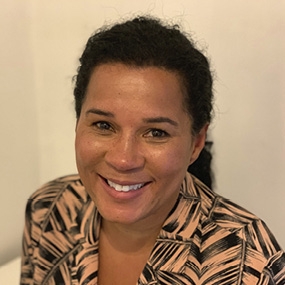“No, really, where are you from?” – My experience as a black anaesthetist in training

Anaesthetist in Training
The past few weeks of Black Lives Matters demonstrations and support across the world have raised the harsh and ugly reality of racism to the world. The fact is, racism exists within healthcare, both on a direct individual level and on a deeper systemic level. I shall not delve into direct personally targeted racism or the complexities of systemic racism. I ask that you simply believe me when I say that it is there, and it is very much alive. The disproportionate impact of COVID-19 on the non-white population further demonstrates the need to delve further and examine its cause.
As a black anaesthetist in training the seemingly innocent and probing question “Where are you really from?” is commonplace when I meet new people in my training. In fact, alongside the “Where are you with the exam” question, this is probably the second most frequently heard. Black, Asian, and other ethnic minorities are used to such lines of questioning and depending on the context and person asking, will respond in a variety of ways. You might receive a flippant ‘Bristol’ answer or a more in-depth truthful answer depending on the context and perceived motivation behind the questioning. Additionally, I have also experienced the banter, “Hey you’ve got a suntan” or ”You must like reggae music”, to the more subtle comments and judgements persistently made of me based on my skin colour. This has been throughout my life and career. I could also talk about bullying and challenges of having to ‘proving myself’ to others, but this would take longer than I have here.
While innocent and meaningful at times, the above type of brief interactions can sometimes be described as ‘microaggressions’. Microaggressions are brief and commonplace daily verbal, behavioural, or environmental indignities, whether intentional or unintentional, that communicate hostile, derogatory, or negative racial slights and insults1 towards people of colour. It’s important to raise the issue of microaggressions as these acts can accumulate overtime and undermine relationships or ruin self-esteem. Microaggressions are something we could all address and start to make changes at a ground level. It is time to support others and address these types of interactions in the workplace. They exist within healthcare, both from staff and patients.
Raising awareness of racism at all levels is important. The time has come not to ignore or undermine my experiences, or those of people like me. The ‘I’m sure they didn’t mean it like that’ or ‘don’t take it personally’ days should be over now. Accepting and facing that racism exists requires us all to face things about ourselves or people we know; things that may make us uncomfortable. In fact, when many of us ‘non-white’ speak out about our experiences we know we can expect a flood of retaliation, trolling or justification from those who disagree.
However, the recent support generated because of the Black Lives Matter campaign and statements such as the recent one from the College hint at a changing world. Something is different this time. I feel it and others do. I really hope this feeling is true and lasting. There are improvements to be made within our own teams, departments, hospitals, specialties, and the NHS as a whole. Indeed, in society and the world. Making a statement or a pledge is the first step in a journey to ending discrimination. The past few months have shown us the rich diversity of people who make up the NHS. It’s time to celebrate that and move forward towards a better future.
Read the joint College statement on racism, discrimination and diversity within healthcare and watch my message of support.
Sethina Watson
References:
- Sue DW, Capodilupo CM, Torino GC, et al. (2007), Racial microaggressions in everyday life: implications for clinical practice. Am Psychol. May‐Jun;62(4):271‐28
